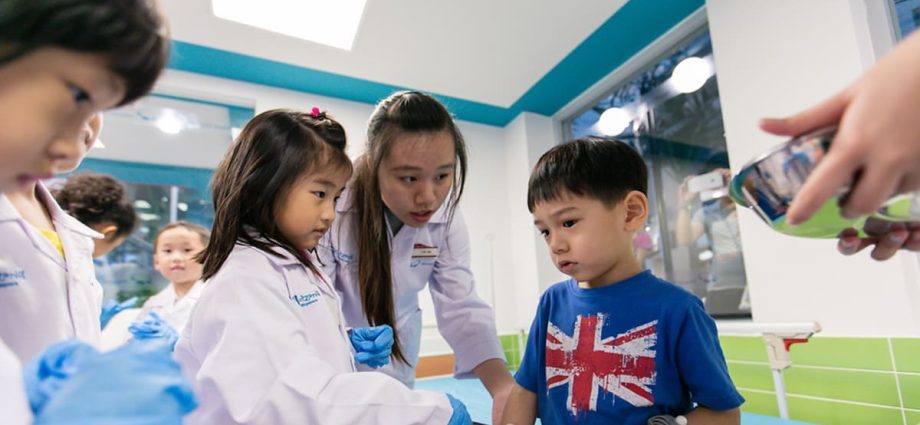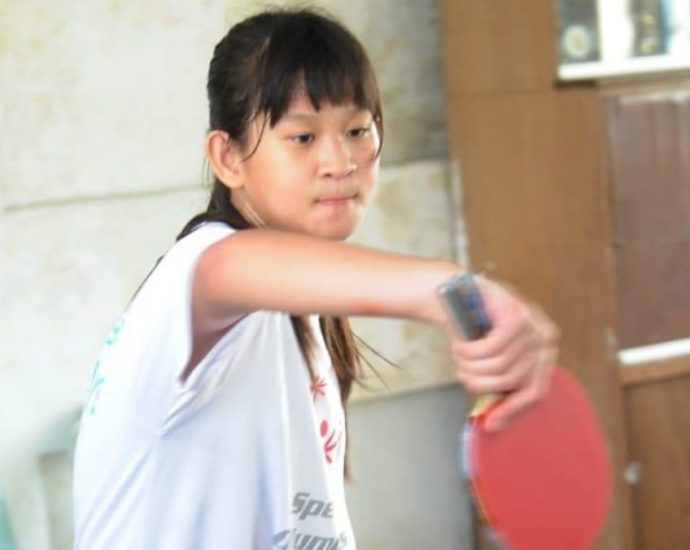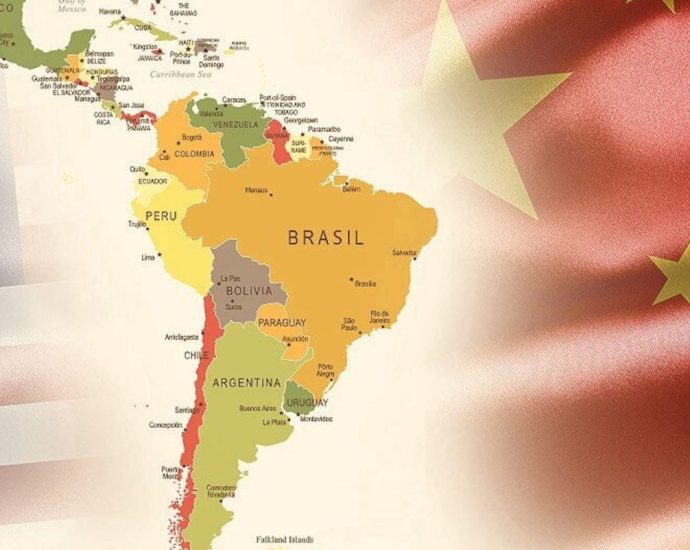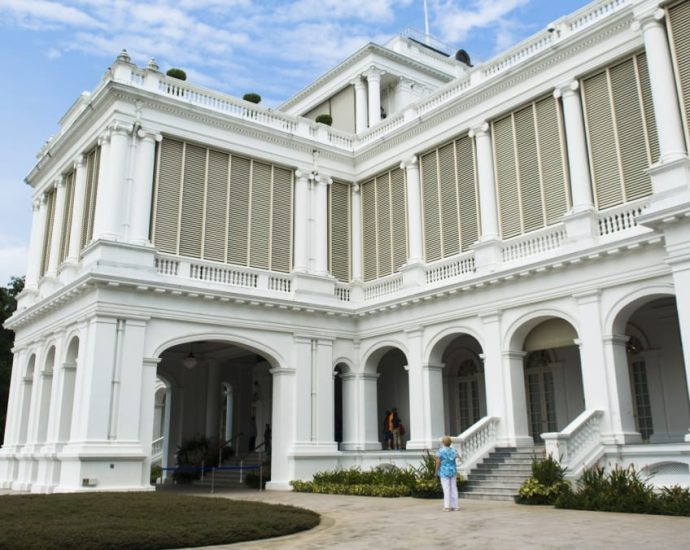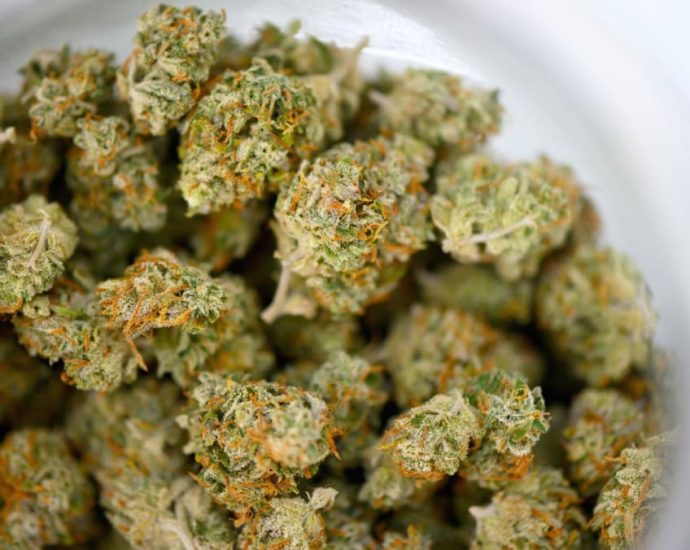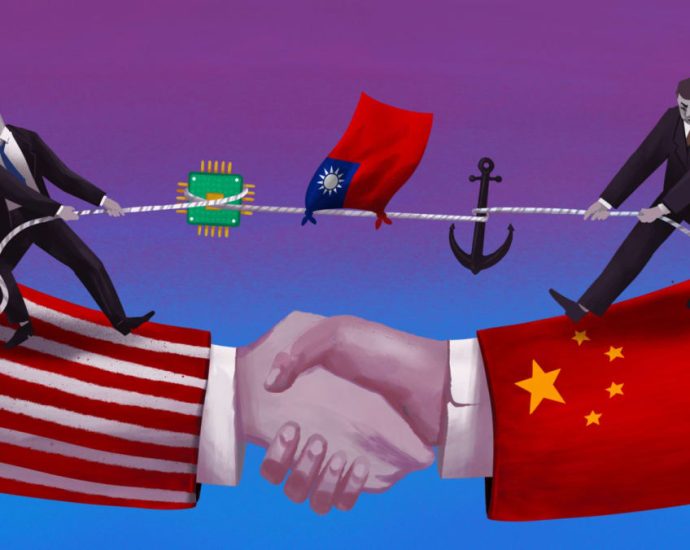Interactive indoor theme park KidZania to return to Singapore in 2024
SINGAPORE: KidZania will return to Singapore in the first quarter of 2024, said theme park developer Sim Leisure Group (SLG) on Monday (Jun 12). The theme park, an indoor family attraction that allows children to role-play different jobs, first opened in Singapore in April 2016 on Sentosa Island but closed permanentlyContinue Reading
Indonesia-led ASEAN sea drills will take harder aim at China
Indonesia, the Association of Southeast Asian Nations’ current revolving chair (ASEAN), is set to stage the first-ever joint military drills among just Southeast Asian bloc’s navies, crucially at a time of escalating US-China tensions.
According to Indonesian military chief Yudo Margono, the drills will be held in “the North Natuna Sea,” a resource-rich area off the coast of Indonesia’s Natuna islands.
Jakarta expressly renamed the area as the “North Natuna Sea”, similar to the Philippines’ designation of its exclusive economic zone (EEZ) in the South China Sea as the “West Philippine Sea”, in order to challenge Beijing’s claims of “traditional rights” in the waters. The islands have been a long-time site of illegal Chinese fishing more recently fortified by a Chinese Coast Guard ship presence.
Back in 2020, Indonesian armed forces deployed at least six warships and four jet fighters to the area in order to protect the country’s claimed sovereign rights.
During a rare high-profile visit to the Natuna Islands, Indonesian President Joko Widodo took an uncompromising position by categorically rejecting any Chinese claims in the resource-rich waters, which overlap with the tip of Beijing’s expansive “nine-dash line” claims in the South China Sea.
Indonesian military spokesperson Julius Widjojono made it clear that the planned ASEAN joint exercises are in response to the “high risk of disaster in Asia, especially Southeast Asia.”
In recent months, Manila has accused China’s coast guard of engaging in “aggressive tactics” and “dangerous maneuvers” in Philippine waters, just as Chinese armed forces challenged American reconnaissance activities in the South China Sea and the Taiwan Strait.
As the regional body’s chairman this year, Jakarta seems intent on reversing the growing marginalization of ASEAN in shaping crises in its own backyard.
Enmeshing superpowers
To be clear, ASEAN nations are no strangers to joint military drills. Over the past decade, Southeast Asian nations have conducted such activities with all major powers.
Back in 2019, for instance, ASEAN navies conducted a five-day-long ASEAN-US Maritime Exercise (AUMX), which began at Thailand’s Sattahip naval base in Chonburi province in the Gulf of Thailand and extended all the way to Cape Cà Mau in southern Vietnam in the South China Sea.
Pre-drills, meanwhile, were held in Brunei and Singapore, underscoring the depth and sophistication of the joint exercises. As many as 1,260 personnel, eight warships, and four aircraft took part in AUMX, with Indonesia and Malaysia serving as observers.
Back then, the Pentagon deployed the USS Wayne E Meyer guided-missile destroyer,USS Montgomery littoral combat ship, P-8 Poseidon aircraft and multiple MH-60 helicopters for the joint drills with ASEAN nations.
Meanwhile, Southeast Asian nations also deployed their own main warships, namely the RSS Tenacious frigate (Singapore), the HTMS Krabi (Thailand), KDB Ramon Alcaraz (Philippines), the KDB Darulaman offshore patrol vessel (Brunei) and UMS Kyan Sittha frigate (Myanmar).

By that time, ASEAN nations had already conducted three naval drills with China. The most high-profile was the inaugural ASEAN-China Maritime Exercise drills in the southern Chinese city of Zhanjiang a year earlier in 2018.
Vice Admiral Shen Jinlong, commander of the (PLA) Navy, characterized the exercises as the country’s vision of “building a maritime community with a shared future” with ASEAN nations.
Meanwhile, ASEAN states also participated in Joint Maritime Drill in Qingdao, China to commemorate the People’s Liberation Army’s (PLA) 70th founding anniversary. China also conducted naval drills in Singapore’s waters in the same year.
But regional maritime tensions have only escalated over the succeeding years. In late 2019, a number of key ASEAN states began to toughen their stance against China in contested waters.
First came an unprecedented warning by Vietnamese deputy foreign minister Le Hoai Trung, who openly threatened potential “arbitration and litigation measures” against China amid festering disputes in the South China Sea.
A month later, Malaysia took observers by surprise when it submitted a claim for an extended continental shelf to the United Nations, directly challenging China’s (and Vietnam’s) expansive claims in the southern portions of the South China Sea basin.
In response to China’s criticisms, then-Malaysian foreign minister Saifuddin Abdullah dismissed Beijing’s claims as “ridiculous” and went so far as to threaten international arbitration to assert his country’s claim, similar to the Philippines successful move at an arbitral tribunal at The Hague in 2016.
Within weeks of Malaysia’s moves, Indonesia found itself at loggerheads with China over the Natuna Islands.
Amid a growing Chinese paramilitary presence in the North Natuna Sea area, the Indonesian Foreign Ministry openly accused China of a “violation of [its] sovereignty” and directly rejected the latter’s claim to “traditional fishing rights” in the area as having “no legal basis” in modern international law including UNCLOS.
It didn’t take long before Indonesian President Widodo, earlier accused of being too soft on China, made a historic visit to the Natuna area, where he declared: “We have a district here, a regent, and a governor here. There are no more debates. De facto, de jure, Natuna is Indonesia.”
The Indonesian military also bolstered its position in the Natuna area to counter any potential contingencies.
Rising Resistance
Although more assertive on an individual basis, ASEAN nations failed to present a collective response. In fairness, Indonesia repeatedly tried to steer regional states towards greater unity on the maritime disputes.
In 2015, the de facto ASEAN leader proposed joint patrols to send a clear message that no single nation should “build up strength or threaten anyone” in the area.
Eager to maintain stable ties with Beijing back then, however, Indonesia didn’t rule out joint patrols with China. But two years later, during the inaugural Australia-ASEAN Summit in Sydney, Widodo proposed a variation on the same theme, except this time he called for joint patrols by non-claimant regional states excluding China.
In 2021, the Indonesian Maritime Security Agency, known as Bakamla, proposed an ASEAN Coast Guard forum as a “great opportunity for ASEAN coast guards and maritime law enforcement agencies to talk and cooperate with each other.”
Earlier this year, Widodo once again emphasized the need for “ASEAN unity” in order to address regional crises. Philippine President Ferdinand Marcos Jr highlighted rising maritime tensions and underscored the “necessity to resolve all sovereignty and jurisdictional issues pertaining to the South China Sea by peaceful means without resort to force.”

In response, ASEAN leaders welcomed “develop[ing] guidelines for accelerating the early conclusion of an effective and substantive” Code of Conduct (COC) in the South China Sea during the summit in Indonesia last month.
The Indonesian-led ASEAN drills later this year are thus seen as part of ongoing efforts to arrest escalating tensions in the region as well as reinforce the regional body’s “centrality” in shaping its own backyard.
“We will hold joint military drills in the North Natuna Sea,” Indonesian military chief Yudo Margono said after a meeting of Southeast Asian defense chiefs in Bali this month.
The top Indonesian general made it clear that the ASEAN naval drills, scheduled for September, won’t include combat operations but emphasized the need for strengthening “ASEAN centrality.”
Follow Richard Javad Heydarian on Twitter at @Richeydarian
âWe donât know what will happen tomorrowâ: One Malaysian familyâs journey to the Special Olympics World Games
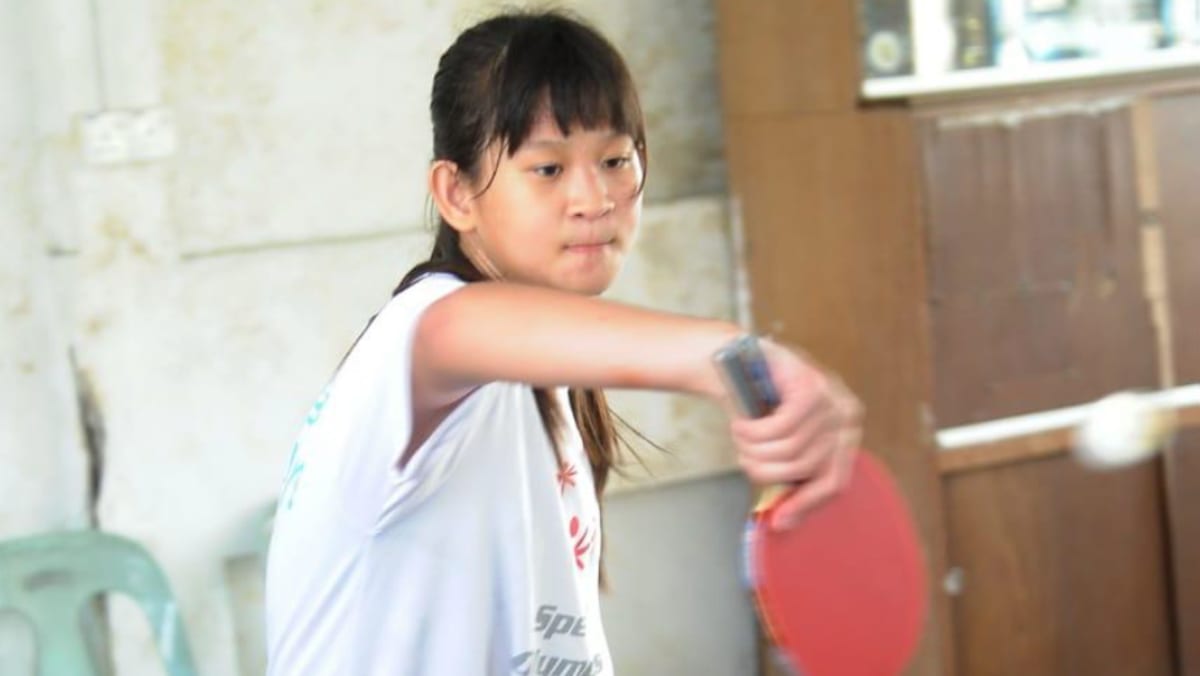
MELAKA: Malaysia will send a contingent of 16 athletes with intellectual disabilities to compete in six sporting events at the upcoming Special Olympics World Games.
Among them is 15-year-old Agnes Tiong, who will be representing her country in table tennis.
She is the youngest athlete in the Malaysian contingent, and has multiple disabilities including hearing impairment and learning difficulties, her mother, Ms Chua Hong Bing told CNA.
Agnes also has a rare disorder which means her body does not produce white blood cells, so she relies on daily injections.
“Compared to other children, she is more vulnerable to infection and gets sick easily. It can be said that the hospital is her second home,” said Ms Chua.
Ms Chua has to keep a close watch on Agnes at all times, as the teen has difficulty expressing herself when she feels unwell.
West has made it easy for China in Latin America

It has long been the case that almost everything that happens in the Latin American region has something to do with China.
This relationship began with commodity trading, when China became the world’s main buyer after putting its economy on steroids to protect it from the effects of the global financial crisis in 2008.
China soon managed to turn the tables by flooding Latin American countries with its exports of consumer goods, and more recently also of intermediate products such as machinery, electronic components, and many others, by competing directly with the United States and, above all, with a Europe that for decades had benefited from its global export power.
When most Latin American countries began to accumulate trade deficits with the Asian giant, China began to develop a second level of economic influence – direct investment.
Despite China’s competitiveness in the manufacturing sector, it has not been these companies that have started to produce in Latin America but rather the electricity sector, as well as the search for control of natural resources.
Beyond direct investment, China’s share of infrastructure construction in the region has been financed by loans from its big development banks, which have only increased Latin American debt, this time with China. In fact, in some cases the accumulation of debt has been so rapid that it has ended up in the need to restructure it, as the case of Ecuador shows.
Diplomatic advances
Having reached a much broader level of economic relations, we should not be surprised that China has also been able to advance its diplomatic relations with much of the region. Indeed, in recent years, of the Latin American countries that still had diplomatic relations with Taiwan, several have turned to Beijing, with Panama as a prominent case because of its strategic importance derived from the Panama Canal, and, more recently, Honduras.
The uncertainties about the future of diplomatic relations with Taiwan of the few remaining countries are enormous, as reflected in the evolution of the recent elections in Paraguay.
But it’s not just Taiwan. Political trends in the region are undoubtedly being influenced by China, as evidenced by Luiz Inácio Lula da Silva’s election campaign in Brazil and his foreign policy. More generally, the winds of left-wing populism are getting stronger, with a view to an alternative model of development in which the state plays a greater role.
While China’s influence may seem unstoppable on its own, the reality is that both the US and the European Union have made it very easy. Both economic blocs have not taken seriously enough the importance of reaching trade and investment agreements with Latin America and have been losing influence in the region.
In the case of the US, the financial crisis undoubtedly left a dent in the average citizen’s appreciation of the benefits of international trade. In the EU, the lack of an agreement with Mercosur after more than 20 years of negotiations is paradigmatic of the difficulties that an economic area, rather than a sovereign one, has in a world where international trade rules are broken and member countries are not willing to make the necessary concessions to move forward.
Beyond trade agreements, it seems difficult to think how the EU can maintain an influence commensurate with its economic size – which, incidentally, is also shrinking in relative terms – with an institutional framework so complicated that it opens us up to the status quo.
It is easy to blame China for Western powers’ loss of influence in the Latin American region, but the reality is that Beijing has only taken advantage of the opportunity the West has carelessly abandoned.
Looking ahead, the question is whether the West’s change of strategy toward China, which advocates reducing the risks inherent in its critical dependence on the Asian giant for some key sectors, such as the energy transition, could also have consequences for the West’s strategy toward Latin America, a region with very important ties historically and culturally, but also with abundant critical raw materials for the energy transition.
Alicia Garcia-Herrero is chief economist for Asia-Pacific at Natixis and senior research fellow at Bruegel. Follow her on Twitter @Aligarciaherrer.
Applications for Singapore Presidential Election open on Jun 13
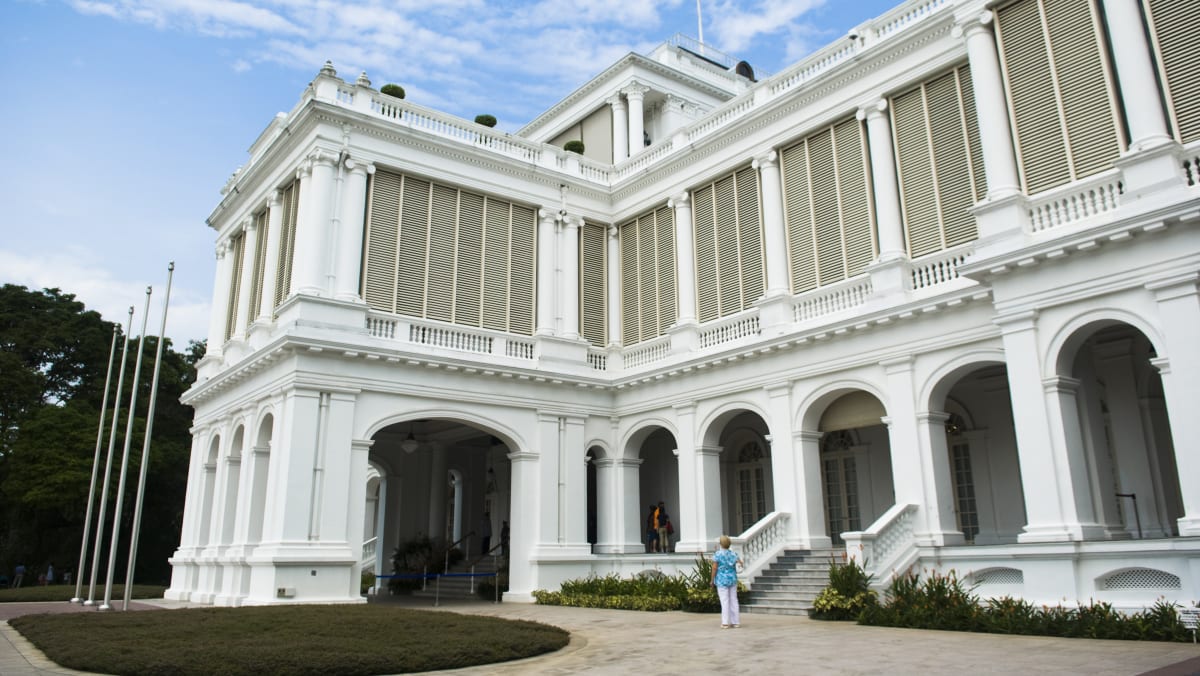
ELD said that prospective candidates are encouraged to use the digital services for candidates at its website to prepare the application form for the CoE. The form must be printed and submitted to ELD with all the supporting documents no later than the fifth day after the Writ of Election is issued.
The ELD public counter is now located at Novena Rise, after it moved in 2021 from its Prinsep Link location.
The PEC issues the CoE no later than the eve of Nomination Day and applicants will be notified of the application outcome.
ELD said that the upcoming Presidential Election may be held at any time from Jun 13, and if it has not been held by the expiration of the term of the incumbent President, it should be held shortly after. President Halimah Yacob’s current term ends on Sep 13.
“We are unable to comment further on the timing of the upcoming Presidential Election, as this is a matter for the Prime Minister to decide,” ELD said in a response to the media.
In the last PE in 2017, the applications for CoE were opened on Jun 1 and the Writ of Election was issued on Aug 28. Nomination Day was Sep 13, 2017.
Senior Minister Tharman Shanmugaratnam is the only person who has announced his intention to run for the presidency, but observers have suggested that Harvey Norman Ossia’s founder George Goh could be a contender.
Japan making missiles to sink Chinaâs hypersonic threat
Japan has unveiled plans for a new long-range anti-ship cruise missile with interchangeable warheads, the latest development in its effort to deter China’s missile threat at sea.
This month, The Warzone reported that the Japanese Ministry of Defense (MOD) awarded a US$257 million contract to Kawasaki Heavy Industries (KHI) to develop an “island defense anti-ship missile” featuring a stealthy turbofan-powered design with a purported 2,000-kilometer range.
The report mentions that the missile will feature a “modular warhead” with land attack, electronic warfare (EW) and reconnaissance configurations.
It also says the missile will use multiple guidance systems through different stages of flight, such as global positioning system (GPS) and inertial navigating system (INS) during its cruise phase and infrared (IR) or radio frequency (RF) seekers during its terminal phase, increasing kill probability and resistance to countermeasures.
The Warzone notes that the missile will have a length of six to ten meters and fly at high subsonic Mach 0.8 speed.
Asia Times noted in January 2023 that launching multiple types of missiles in one attack can significantly improve accuracy, with a reconnaissance missile having a high-performance camera to spot the enemy’s position, followed by an EW missile to disable enemy radar and other sensors, after which a missile with a high explosive warhead delivers the lethal strike.
The growing missile threat from China and North Korea, alongside the limitations of current missile defenses, may have prompted Japan to invest in long-range pre-emptive strike capabilities, with the missile threat posed by China now evolving with a maritime dimension.
Asia Times noted in May 2022 that China alone has 1,900 ground-launched intermediate-range ballistic missiles (IRBM) and 300 intermediate-range cruise missiles pointed at Japan. North Korea also has hundreds of ballistic missiles that can strike Japan.
Those threats have pushed Tokyo to acquire long-range missiles for pre-emptive strike capability. Attacking the base of a guided missile may fall under Japan’s scope of self-defense if there are no other defensive options.

China now also has hypersonic missile-armed warships. Asia Times reported in October 2022 that China can now deploy hypersonic weapons aboard its carriers and deploys the YJ-21 hypersonic missile aboard its Type 055 cruisers.
Japan’s new anti-ship cruise missile marks a significant step toward taking its pre-emptive defensive posture to sea, with drones possibly acting as target designators.
Asia Times reported in March 2023 that Japan is mulling the use of drones to intercept foreign aircraft intruding into its airspace. This year, Japan will start testing drones to chase warships to gauge performance and functionality. If successful, Japan will next test drones against aircraft.
Those drones may provide the necessary intelligence, surveillance, reconnaissance (ISR) and target acquisition for Japan’s upcoming new anti-ship missile.
Information-sharing between Japan and its allies may also considerably improve the lethality of its upcoming anti-ship missile. As Japan has limited long-range ISR and target acquisition capabilities, such an arrangement can offset that capability gap.
Asia Times reported this month on US plans to link Taiwan and Japan’s MQ-9 Sea Guardian drones with a common system to enable real-time information exchange.
That arrangement would allow the US and its partners to observe the same picture the drones capture, giving all three access to a common operating picture. The US and its partners are taking a practical approach to the program to ensure that integration is done quickly.
Apart from the island defense anti-ship missile, Japan is developing other types of missiles to bolster its deterrent posture against China and North Korea.
Asia Times reported on May 2023 that Japan’s MOD had signed four contracts with Mitsubishi Heavy Industries to design and manufacture various standoff missiles.
These contracts include US$1.29 billion to upgrade Type 12 SSM missile production, US$200 million to develop Type 12 SSM ground/air/ship-launched variants, US$891.8 million for Hyper Velocity Gliding Projectile (HVGP) mass production, and US$436 million for the development of a submarine-launched guided missile.
The upgraded Type 12 SSM will start production this year and is slated to enter service in 2026, with successive upgrades increasing its range to 200, 900 and eventually 1,500 kilometers.
Japan also has two hypersonic weapon designs, with the HVGP Block 1 stated for production this year, with an estimated range of 500 to 900 kilometers, fired from a two-round truck-based launcher.
The other designs, Block 2A and 2B, have ranges of 2,000 to 3,000 kilometers and are slated to be developed from 2023 to 2027 and 2023 to 2030 respectively.
Japan is also planning to develop an extended-range submarine-launched Type 12 SSM between 2023 and 2027 alongside a new class of submarines equipped with vertical launch systems (VLS) to fire larger missiles.
The limitations of Japan’s existing missile defense systems may have prompted it to invest in pre-emptive strike capabilities at sea.
Ship-launched hypersonic missiles such as the YJ-21 can skip along the upper atmosphere for greater range, operate at altitudes too high or too low for traditional missile defenses such as the Aegis and Patriot, and maneuver on unpredictable flight paths to increase the difficulty of interception.
Hence, the best defensive option may be to take out hypersonic-armed ships in a pre-emptive strike before they could launch their missiles.

Japan’s missile splurge may also be due to its vulnerability to a blockade as an island nation, which in a conflict scenario could cut it off from critical imported missile components and stocks.
Deterring or breaking a blockade may require maximum independence from foreign missile suppliers.
While the US is Japan’s primary arms supplier, in a conflict scenario, the US will need all the missiles it can manufacture, potentially leaving few to spare for Japan.
Stockpiled missiles have a limited lifespan measured in years, and for Japan, stockpiling by buying US stocks may be an unsustainable option.
Japan also needs indigenous missile manufacturing capabilities to sustain a high rate of fire over a sustained period should a Taiwan Strait or Korean Peninsula crisis escalate into a war of attrition.
WTC final: Why has India stopped winning ICC tournaments?
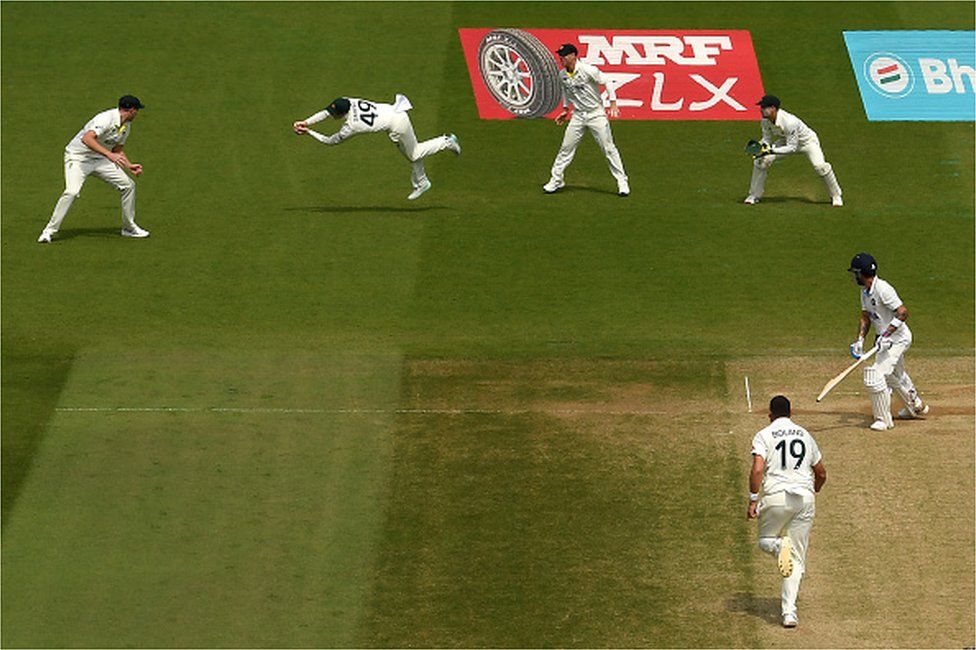 Getty Images
Getty ImagesFinishing as the second best team in the world over four years and two cycles isn’t such a bad thing. By losing two successive finals of the World Test Championship, however, India have blotted their copybook somewhat.
It is possible that India lost the final on the opening day when they won the toss and asked Australia to bat first. Australia might have done the same – but they had better fast bowlers. Was that why India bowled first, so they wouldn’t have to face them first up? Was it a defensive move? It is one of cricket’s enduring cliches – attributed to players from WG Grace to Bishan Singh Bedi – that when you win the toss, bat. If you have to think about it, think for a bit and then bat.
Another of the game’s received wisdoms, the mantra of captains from Tiger Pataudi in the 1960s to Clive Lloyd in the 1980s is: play your best bowlers.
When the best bowlers in the West Indies were all fast bowlers, Lloyd played four of them; when India’s strength was spin, they played the spinners. It may have been lopsided, but including a token spinner in Lloyd’s team or a token medium pacer in Pataudi’s served no purpose. Thus even a wicketkeeper once opened India’s bowling as did star opening batter Sunil Gavaskar!
At a pinch, the choice at the Oval could have been between Jayadev Unadkat, whose left arm medium pace would have added variety and the great Ravichandran Ashwin, their most successful bowler in the two-year cycle. If claiming 474 Test wickets only entitles you to carry drinks to the field, Ashwin might begin to think he is in the wrong business.
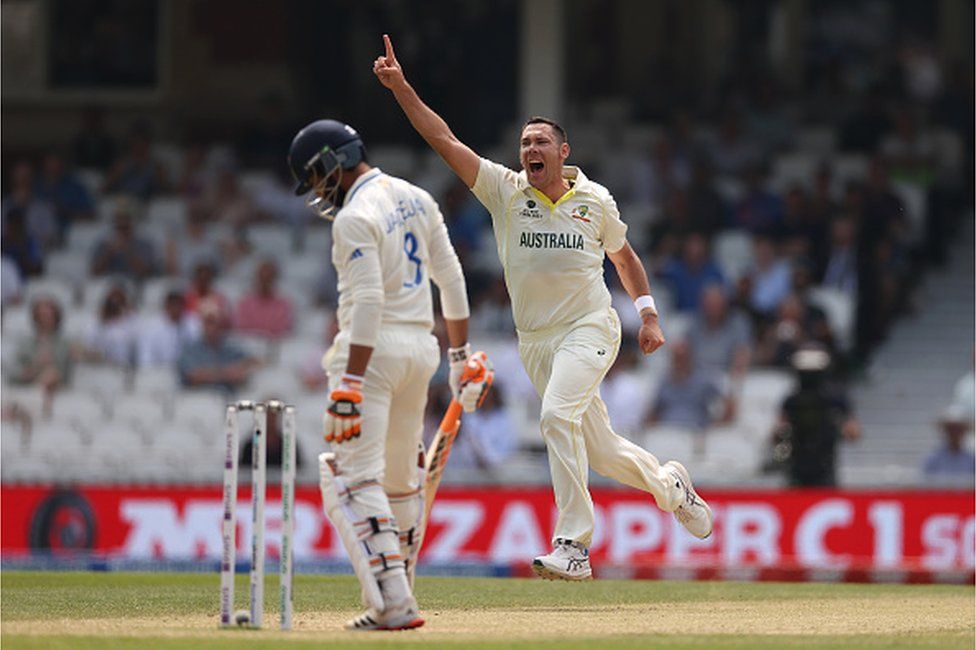
India might still have been bowled out for 150 in the first innings and Ashwin might not have taken any wickets in the fourth, but at least it would show the team management’s thinking was sound.
For those who felt that the Rohit Sharma-Rahul Dravid combination of captain and coach might be too timid and the team required an aggressive duo at the top, the result was the same in 2021 with the more belligerent Virat Kohli-Ravi Shastri combo. India got the team selection against New Zealand wrong on that occasion and sought to make up this year, but two wrongs don’t make a right.
Having got the fundamentals wrong, India were playing catch up from day one at the Oval. Australia reserved their best for the best – Kohli got a beauty in the first innings from Mitchell Starc which he was good enough to nudge; in the second he was beaten by a Scott Boland beauty and fell to a blinder in the slips by Steve Smith.
India lacked that kind of fire. On the second morning, with Smith batting on his overnight 95, Mohammed Siraj presented him with two half volleys to virtually guide him to his century.
All kinds of excuses will be trotted out for India’s no-show: the IPL, the Duke’s cricket ball with which the match was played, the earliest Test at the Oval ever, the inconsistent bounce in the wicket, the fact that Jasprit Bumrah, Rishabh Pant and KL Rahul were missing from the team, but many of these applied to Australia too.
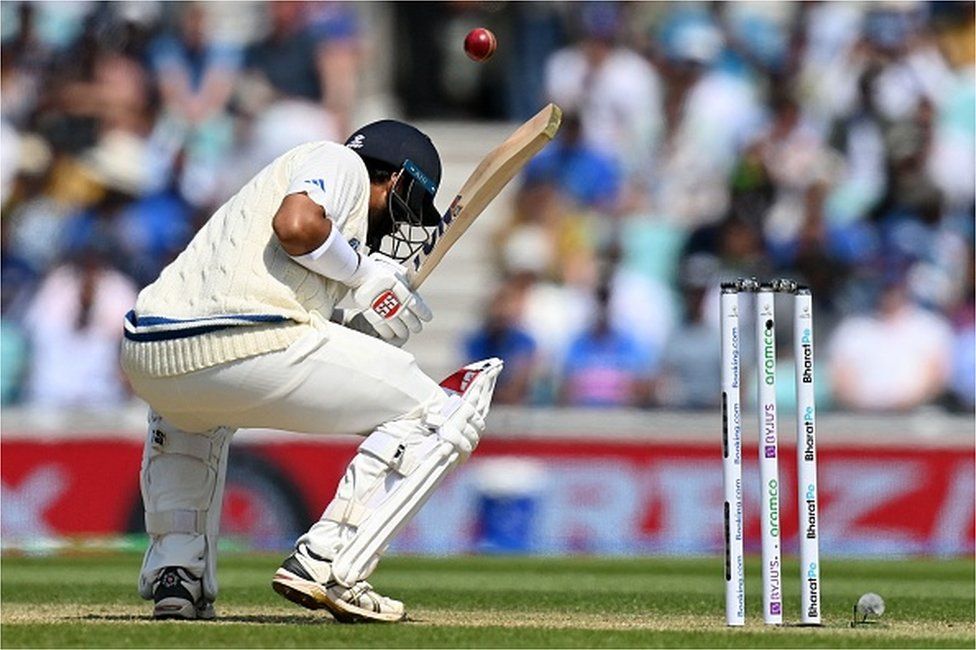
As has often happened in the recent past, a couple of good deliveries dismiss a couple of the top batsmen, a couple of poor strokes lead to more dismissals, and suddenly everyone is trying to work out how many first class fifties the No.8 batsman has scored.
Who would have expected Cheteshwar Pujara to let the wrong ball go and be bowled in the first innings or play the upper cut to the wrong ball and get caught behind in the second? And he is the only player not to have played the IPL! Ironically, India’s best batter in the contest, Ajinkya Rahane (89 and 46), doesn’t have a central contract!
Why do India consistently fall at the last or the penultimate hurdle in ICC tournaments?
Ten years is a long time to wait for a title – they last won the Champions Trophy limited overs in England in 2013. It is dangerous to seek a pattern here, for there cannot be one. White ball, red ball, tournaments at home, tournaments away, different captains and coaches, different times of the season – there are too many variables. Keep harping on it and the word chokers threatens to pop up. But India aren’t chokers.
They have won in England and Australia, in Sri Lanka and South Africa. They aren’t simply tigers at home and lambs abroad as they once were.
In the last 30 years, they have won significantly more away Tests than they have lost (124-80). The results of the last two World Test Championship finals cannot take away from that record.
Suresh Menon is an author and columnist
Man gets jail, caning for drug offences after friend asked for help to buy cannabis
SINGAPORE: When his friend from secondary school asked him for help in obtaining cannabis, a man agreed and asked his contact for assistance. The contact was nabbed by Central Narcotics Bureau (CNB) officers after making the transaction with a Malaysian man at a hospital car park. Singaporean Mohamed Rafi MohamedContinue Reading
Can warmer ties overcome the deepening divide in China-US relations?
Zhu Feng, executive dean of the school of international studies at Nanjing University, said the next US presidential election cycle could add more uncertainties to the Taiwan issue, potentially doing further harm to ties. “It might further ignite tensions in China-US relations [if US] figures across various levels were toContinue Reading
Coldplay to perform in Singapore for 4 nights in January 2024

The announcement comes days after Live Nation Singapore uploaded a teaser that featured promos of Coldplay’s tour playing on the screens of multiple buildings in Singapore.
Coldplay’s run at the National Stadium will make them the first act to play for four nights at the venue. Their Music Of The Spheres World Tour has sold over 7 million tickets, the most for any tour over the last two years, and has earned the band the Favorite Touring Artist award at the 2022 American Music Awards.
As part of the group’s sustainability initiatives, Coldplay’s Music Of The Spheres World Tour has produced 47 per cent less carbon dioxide emissions than their previous stadium tour in 2016/2017. Five million trees have also been planted around the world, one for each concert-goer.
Artiste presales of the concert will be held on Jun 19 from 2pm to 11.59pm. To get in on this, fans will have to subscribe to the newsletter on Coldplay’s website by Jun 16.
General sales will then commence on Jun 20 from 2pm via Ticketmaster, with ticket prices starting from S$68, excluding booking fees.
The band has also announced that they’ll be releasing a limited number of Infinity Tickets, priced at the equivalent of US$20 (S$27), for the shows at a later date. These tickets aim to make the tour more accessible to fans. Restricted to two tickets per buyer, Infinity Tickets must also be bought in pairs (which will be located next to each other).
Besides Singapore, Coldplay will also be adding Manila and Bangkok to their ongoing tour – playing on Jan 19 and Feb 3, respectively.

